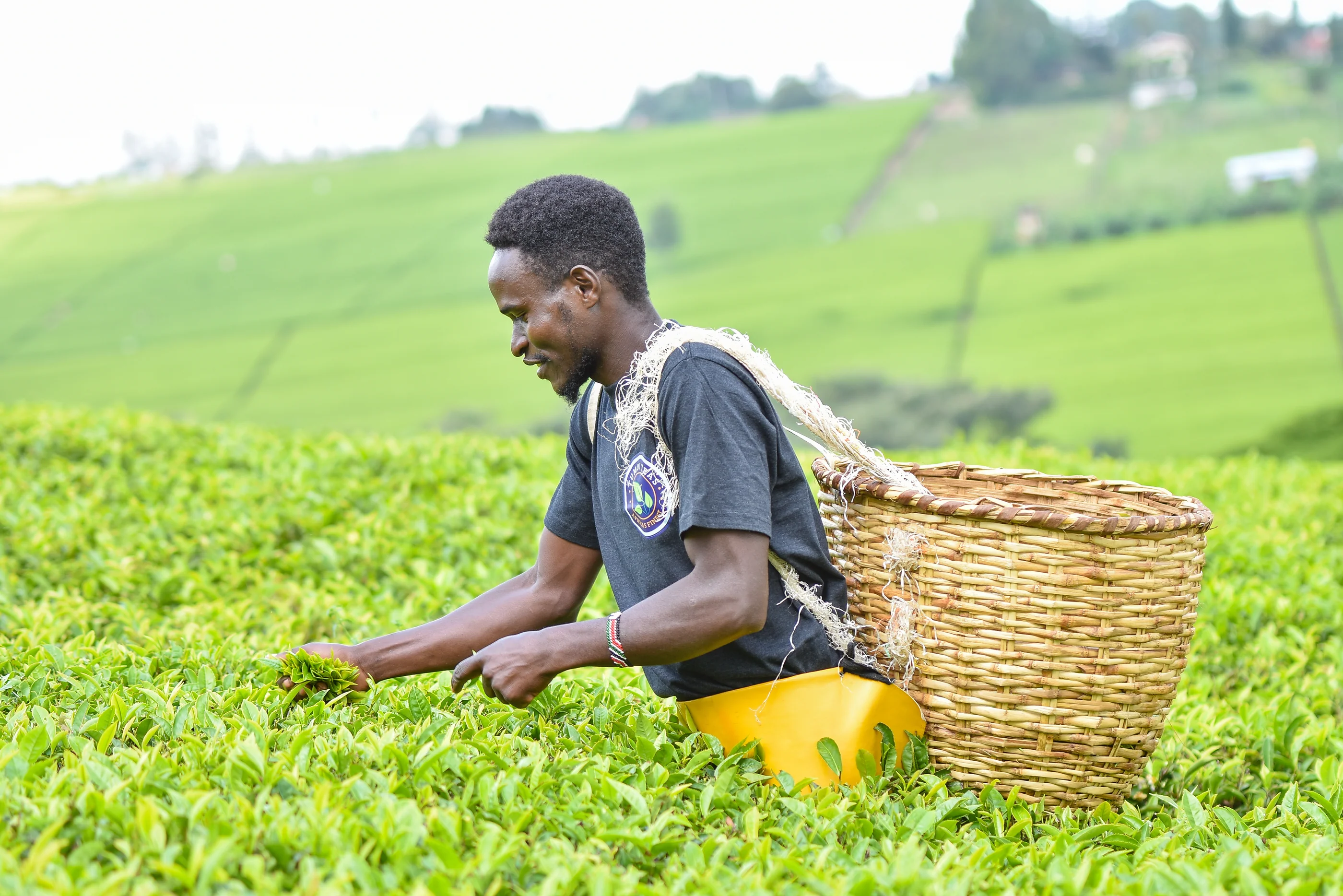
 Farmer plucking tea./FILE
Farmer plucking tea./FILE
Senators have raised concern over significant inequalities in tea bonus payments across the country, with farmers in some regions earning as high as Sh50 per kilogramme, while others receive as little as Sh12.
Recent bonus rates for the 2024-25 financial year released by the Kenya Tea Development Agency (KTDA) revealed major discrepancies.
They said that while farmers in the Mt Kenya region received substantial bonuses, those in Kisii, Nyamira, and other tea-growing counties were paid far lower rates, sparking outrage.
“Farmers in Kisii and Nyamira counties have started destroying tea collection centres in protest and disillusionment, believing their sweat and toil are not being fairly rewarded,” Nominated Senator Esther Okenyuri said.
The senator said the glaring inequality has not only caused frustration but also raised questions about the transparency of KTDA’s pricing and distribution system and whether smallholder farmers in certain regions are being systematically disadvantaged.
She warned that tea, one of Kenya’s leading foreign exchange earners and the livelihood of millions of families, could face instability if the disparities are not urgently addressed.
“The government, KTDA and relevant stakeholders must urgently review the disparities and take decisive measures to restore fairness, equity and confidence among farmers in Kisii, Nyamira and all other affected regions,” Okenyuri said.
Kisii Senator Richard Onyonka said his previous questions to the Senate Agriculture, Livestock and Fisheries Committee on the matter had gone unanswered for more than two years.
“We are still tasting tea using the tongue, yet scientists tell us there are better parameters — like measuring iron and potassium content — that can determine quality objectively,” he said.
For years, farmers in some regions have been told their tea is of lower quality due to soil degradation or poor farming practices, a narrative Onyonka said has been used repeatedly to justify low bonuses.
Nandi Senator Samson Cherargei dismissed claims that tea quality differs between Mt Kenya and western Kenya, saying the disparities are unjustified.
“In Kinoro, Mt Kenya, farmers are getting Sh48.10 per kg. In Mudete, Vihiga county, they are getting Sh10; in Chebut, Sh12; Kapsara, Sh10; Nyansiongo, Sh12; Momul, Sh24; and Tergat, Sh14 per kg. This is a great travesty and injustice,” he said.
“If KTDA doesn’t fix this, we will uproot tea altogether and see where tea lovers, including lawyers, will get their brew.”
Busia Senator Okiya Omtatah blamed KTDA for neglecting regions where bonuses are lower, saying the agency abandoned farmers when the market was liberalised, allowing unregulated traders to compromise quality.
“KTDA should spread its management systems to other parts of the country, just as it has done in central Kenya. Rogue buyers who collect any kind of leaf and compromise quality should be weeded out of the industry,” he said.
Narok Senator Ledama Olekina, however, took a different view, arguing that bonuses should not necessarily be uniform.
“We must be realistic. Soil conditions, climate, management and demand determine the bonuses paid. Saying it should be universal is missing the point,” he said.
Senate Deputy Speaker Kathuri Murungi also defended KTDA, saying the differences were due to management and quality issues at individual factories, not bias.
“Farmers elect their factory directors. If a factory pays lower bonuses, management must explain why. For example, in Nyansiongo, the rate dropped from Sh30.50 to Sh12 per kilo — that’s an Sh18.50 difference,” he said.
“Some factories pluck four leaves and a bud, while in the east, they pluck two leaves and a bud — quality matters,” he added.
Elgeyo Marakwet Senator William Kisang said the Ministry of Agriculture and KTDA should ensure equitable bonus payments, while acknowledging that tea quality and production conditions vary by region.
Nominated Senator Joyce Korir echoed the calls for reform, urging the ministry to convene stakeholders to develop a lasting solution.
“It’s unacceptable that some regions earn as low as Sh10 per kilo while others take home Sh50. The ministry must act,” Korir said.
INSTANT ANALYSIS
Farmers have been protesting in the country’s tea belt areas west of the Rift Valley, where factories announced meagre payments compared to previous years.
The regions that include Nyamira, Kisii, Kericho, Bomet, Nandi and Vihiga counties have seen tea farmers earn less compared to areas east of the Rift Valley such as Nyeri, Murang’a, Meru, Kirinyaga, Embu and Kiambu. The tea agency noted that the drop also affected tea prices in different regions of the country. For instance, the East Rift and Kiambu fetched Sh371 per kilo, a drop of Sh46 from last year.













